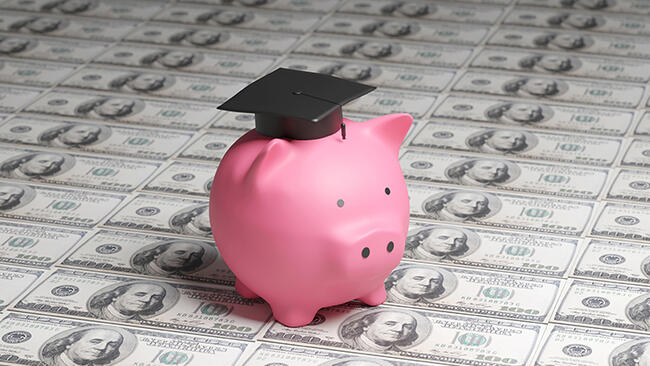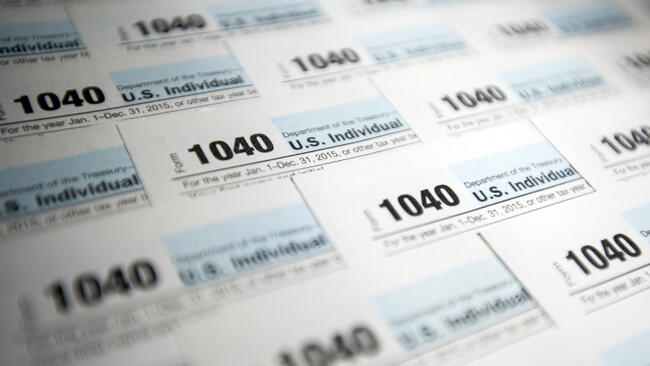Does Buy Now, Pay Later affect credit scores? It will soon
Does Buy Now, Pay Later affect credit scores? It will soon
Americans can Buy Now, Pay Later (BNPL) — but credit score hits may come sooner as FICO is set to factor in BNPL loans into a new scoring model
Does Buy Now, Pay Later affect credit scores? It will soon
Americans can Buy Now, Pay Later (BNPL) — but credit score hits may come sooner as FICO is set to factor in BNPL loans into a new scoring model


Listen
·Key takeaways
- FICO will release a new credit-score model that factors in BNPL loans in fall 2025.
- While 40% of BNPL users say the loans not impacting their credit is a top benefit, 45% say they won’t change the habit even if their score changes.
- Empower Personal DashboardTM data shows a dramatic rise in BNPL usage, with monthly spend increasing 21% between June 2024 and June 2025.
Wondering if BNPL affects your credit score? A new credit score model going into effect this fall will add BNPL loans to credit reports.
Turns out ‘later’ isn’t that far off for your credit score. FICO, the company that creates credit scores, will start including Buy Now, Pay Later (BNPL) data in its scoring model in fall 2025. Banks and lenders will be able to see one score that considers users’ BNPL loans — and one that does not — and decide which to use as they consider borrowers’ creditworthiness.
For the 52% of Americans already using BNPL for everything from grocery shopping to funding their next vacation, the move could introduce new credit reporting implications that affect how lenders evaluate their financial health.1
Read more: The rise of Buy Now, Pay Later
How does BNPL actually work?
Typically, BNPL loans split payments into four interest-free installments over six weeks. Major retailers — including Amazon, Walmart, and Sephora — have partnered with BNPL providers such as Afterpay, Klarna, and Affirm to offer the payment option. These arrangements allow customers to make an initial payment at the time of purchase and receive their goods immediately.
Empower Personal DashboardTM data reveals BNPL usage has grown significantly in recent years: Monthly BNPL spending increased almost 21% from $201.60 in June 2024 to $243.90 in June 2025.
To date, BNPL loans have had no impact on consumers’ credit scores, offering a “less scary” alternative to traditional credit cards, according to two in five Americans.2
Will what seemed interest-free now cost points?
Soon, FICO’s new BNPL-inclusive model will give lenders increased visibility into consumers’ repayment behavior.
The new scores were trained on a sample of more than 500,000 BNPL users in a joint study with Affirm. The model groups together multiple BNPL loans when evaluating creditworthiness. According to FICO, consumers with five or more Affirm loans typically saw their scores increase or remain stable under the new model during early testing.3
Industry experts predict the shift won’t dramatically alter existing credit profiles but could result in a more accurate picture of a consumer’s debts and keep consumers from over-extending themselves.4
Still, many consumers remain unfazed. About 40% of BNPL users say that not affecting their credit score is one of the top benefits of using the service, according to a recent survey of over 1,000 Americans. Despite this, 45% of users said they wouldn’t change their BNPL usage even if it began to impact their credit score.5
A calculated risk
In the U.S., where credit scores influence access to everything from housing to cars, incorporating BNPL data into credit scores is high stakes. For consumers who have treated BNPL as a no-strings alternative to credit cards, the shift could spotlight the need for accessible financial education to teach borrowers how to use credit responsibly.6
Data shows significant differences in financial behaviors between BNPL-users and non-users, including a tendency among BNPL users to spend more and to perceive BNPL purchases as feeling “free.”7,8 An analysis from the Consumer Finance Protection Bureau found around 63% of BNPL users took out multiple loans at the same time in the last year and 33% of users borrowed from multiple lenders.
Read more: Gen Z's passion for plastic: Strategies for dealing with credit card debt
But BNPL could work in consumers’ favor
FICO said the new model will responsibly expand access to credit for younger consumers and those who may not have good or lengthy credit histories.9 Consumers who repay their BNPL loans on time could see their credit scores improve, making it easier to get a mortgage, car loan, or apartment.
Read more: How to build credit
FAQs about BNPL and credit scores
When will Buy Now, Pay Later be added to my credit score?
FICO will launch its new credit score model with Buy Now, Pay Later (BNPL) data starting in the fall of 2025.
How does Buy Now, Pay Later affect credit scores?
As of July 2025, Buy Now, Pay Later doesn’t affect credit scores, but that will change this fall when FICO rolls out a new credit score model that factors in BNPL data. At that point, missing payments on a BNPL loan may make it more likely that your credit score will be penalized.10
How does Buy Now, Pay Later make money?
The Buy Now Pay Later business model earns revenue primarily through merchant fees, typically ranging from 4% to 9.5% of the purchase amount.11 Retailers pay these fees in exchange for increased sales and higher average order values. While many BNPL plans are interest-free for consumers, providers may also generate income from late payment fees, interest on longer-term financing, and interchange fees on branded payment cards.
Get financially happy
Put your money to work for life and play
1 PartnerCentric, “BNPL on the Rise: 65% of Gen Zers Using BNPL More in 2025,” April 2025.
2 PartnerCentric, “BNPL on the Rise: 65% of Gen Zers Using BNPL More in 2025,” April 2025.
3 The Wall Street Journal, “Choosing ‘Buy Now, Pay Later’ at Checkout Will Now Factor Into Your Credit Score,” June 2025.
4 Associated Press, “Buy Now, Pay Later loans will soon affect some credit scores,” June 2025.
5 PartnerCentric, “BNPL on the Rise: 65% of Gen Zers Using BNPL More in 2025,” April 2025.
6 World Economic Forum, “Could adding Buy Now Pay Later data into credit scores turn microloans into macro risks?” July 2025.
7 American Marketing Association Journal of Marketing, “Buy Now, Pay Later: Impact of Installment Payments on Customer Purchases,” September 2024.
8 PartnerCentric, “BNPL on the Rise: 65% of Gen Zers Using BNPL More in 2025,” April 2025.
9 Associated Press, “Buy Now, Pay Later loans will soon affect some credit scores,” June 2025.
10 The Wall Street Journal, “Choosing ‘Buy Now, Pay Later’ at Checkout Will Now Factor Into Your Credit Score,” June 2025.
11 NPR, “Who actually pays with buy now, pay later companies like Klarna and Affirm,” June 2022.
RO4675192-0725
The content contained in this blog post is intended for general informational purposes only and is not meant to constitute legal, tax, accounting or investment advice. You should consult a qualified legal or tax professional regarding your specific situation. No part of this blog, nor the links contained therein is a solicitation or offer to sell securities. Compensation for freelance contributions not to exceed $1,250. Third-party data is obtained from sources believed to be reliable; however, Empower cannot guarantee the accuracy, timeliness, completeness or fitness of this data for any particular purpose. Third-party links are provided solely as a convenience and do not imply an affiliation, endorsement or approval by Empower of the contents on such third-party websites. This article is based on current events, research, and developments at the time of publication, which may change over time.
Certain sections of this blog may contain forward-looking statements that are based on our reasonable expectations, estimates, projections and assumptions. Past performance is not a guarantee of future return, nor is it indicative of future performance. Investing involves risk. The value of your investment will fluctuate and you may lose money.
Certified Financial Planner Board of Standards Inc. (CFP Board) owns the certification marks CFP®, CERTIFIED FINANCIAL PLANNER™, CFP® (with plaque design), and CFP® (with flame design) in the U.S., which it authorizes use of by individuals who successfully complete CFP Board's initial and ongoing certification requirements.





